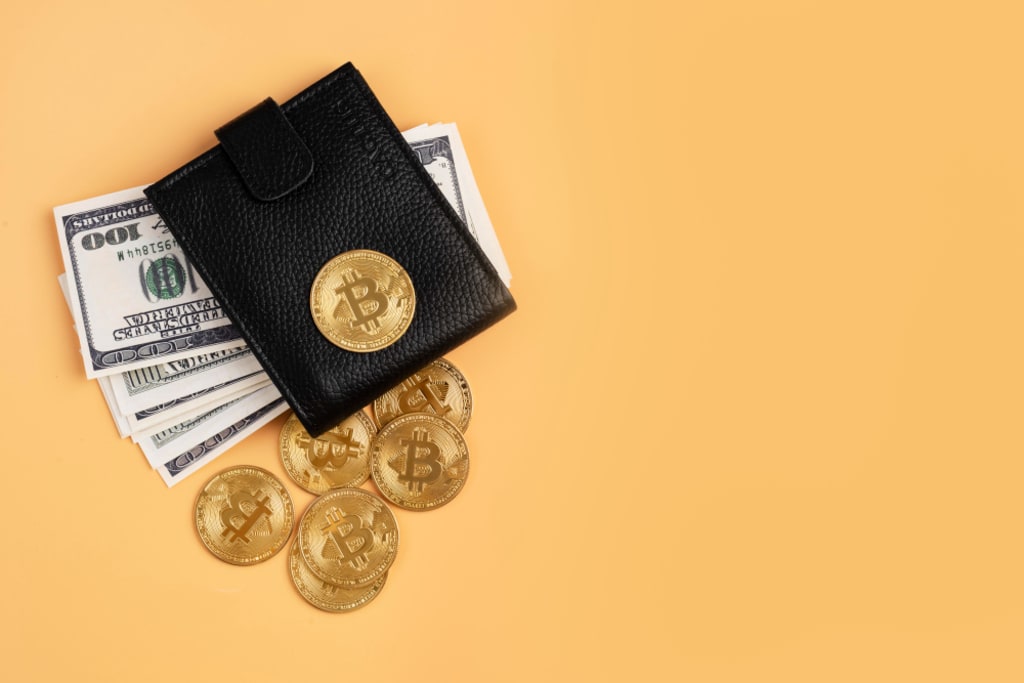How Liverpool’s new local currency fits into global trends of money and power
Bitcoin market

The tensions between Iran and the United States are being played out on multiple fronts. One of the less frightening is perhaps Iran’s abandonment of the dollar in its financial reporting. But it is also eerily similar to Saddam Hussein’s decision to abandon the dollar in 2000, which is one of the proposed causes of US military aggression in the area in 2003.
This interlinking relationship between money and the military can also be seen in Trump’s other putative arena of international conflict: his hostility towards China. In particular, his oThe pressures on Iran and the US are being worked out on different fronts. One of the less terrifying is maybe Iran's relinquishment of the dollar in its monetary announcing. In any case, it is additionally shockingly like Saddam Hussein's choice to leave the dollar in 2000, which is one of the proposed reasons for US military hostility nearby in 2003.
This interlinking connection between cash and the military can likewise be found in Trump's other putative field of global struggle: his antagonism towards China. Specifically, his resistance to China's presence in the South China Ocean is inseparable from his case that the Chinese cash is misleadingly stifled to give them an exchange advantage.
These global signals all structure part of Trump's patriot way of talking of occupation creation which is being utilized to subvert both the worldwide request and the (generally negligible) global monetary administrative framework. In the meantime, ironically Money Road is being liberated as at no other time, all for the sake of apparently saving Central avenue.
The undeniably perplexing uniqueness between the neighborhood and the world that this new ascent of nonintervention has created isn't just clear on the global stage. There are reverberations of it in northwest England.
One of 2017's positive reports, for instance, is the send-off of Liverpool's own nearby cash. Liverpool's nearby pound is an area of the city's recovery and is intended to keep cash circling inside the city as opposed to permitting it to be piped out through the benefits of the worldwide organizations that pose a potential threat to the city's new shops and arcades.
Repeating topics
This goes to a neighborhood elective money is a repetitive one. Especially in snapshots of monetary constriction, the accentuation on neighborhood networks and the drawn-out development of little and free organizations implies that these monetary standards are bound to their nearby networks, such that benefits neighborhood individuals and the climate. Liverpool joins the positions of Totnes and Bristol in the UK, which have effectively utilized neighborhood monetary forms to recover their economies.
Focusing on the nearby has obviously perceptible advantages in a period of worldwide money. One of the latest and revolutionary defenders of elective monetary forms, Kojin Karatani, sees these monetary forms as strong in light of the fact that they stand beyond the cycles of the worldwide monetary framework. Since their development is more fixed and in light of the fact that, essentially, they can't tolerate interest these monetary standards are not exposed to the gaming - withdrawal and hypothesis, the production of credit and obligation - through which the monetary business has misshaped the worldwide economy.
However, it is additionally essential to recall there isn't anything innately or consequently moderate in the presence of these elective monetary standards. As a matter of fact, their verifiable longing for a confined type of flow could be backward.
Crypto inclinations
One of the best instances of cash that opposed obligation creation, for instance, was the mid-twentieth century Social Credit spearheaded by CH Douglas, which planned to assume the command over cash away from the monetary framework and give it to normal individuals by making a "public profit" that got the benefits of creation once again to the laborer.
However, the profoundly regulatory construction of the express that this required, and Douglas' own sending of a socially backward and hostile to Semitic jargon, has implied that his thoughts are currently much of the time related to a profoundly safe social plan. Later elective monetary standards, from corporate preferred customer credits to the freedom supporter Bitcoin, are obviously intended to sidestep different parts of state guidelines, instead of advantage neighborhood networks.
Furthermore, thusly the main problem is brought to light with the send-off of Liverpool's nearby cash. Its manner of speaking is an exceptionally natural one: the case that it will bring in cash "stick" to the city. Furthermore, its site gladly guarantees that its guarantors are "individuals from the Society of Free Monetary standards" and that it will work with "our companions in Bristol, Brixton, Kingston, Totnes" to advance far-reaching money, which is too "completely directed by the Bank of Britain".
However what the site doesn't uncover as unmistakably is that this is a virtual digital currency that is given and upheld not by the nearby local area but rather by Colu, an innovation organization situated in Israel. Consequently, despite the fact that Liverpool's pound will work locally, and likely could find lasting success in privileging neighborhood organizations, it will likewise be charging nearby traders for this innovation. In the meantime, its opposition to China’s presence in the South China Sea is inextricable from his claim that the Chinese currency is artificially suppressed to give them a trade advantage.
These international gestures all form part of Trump’s nationalist rhetoric of job creation which is being used to undermine both the international order and the (already minimal) international financial regulatory system. Meanwhile, it is ironic that Wall Street is being freed as never before, all in the name of ostensibly saving Main Street.
The increasingly paradoxical dynamic between the local and the global that this recent rise of isolationism has produced is not only evident on the international stage. There are echoes of it in northwest Britain.
One of 2017’s positive news stories, for example, is the launch of Liverpool’s own local currency. Liverpool’s local pound is part of the city’s regeneration and is designed to keep money circulating within the city rather than allowing it to be funneled out through the profits of the global companies that loom large in the city’s new shops and arcades.
Recurring themes
This turn to a local alternative currency is a recurring one. Particularly in moments of economic contraction, the emphasis on local communities and the long-term growth of small and independent businesses means that these currencies are bound to their local communities, in a way that benefits local people and the environment. Liverpool joins the ranks of Totnes and Bristol in the UK, which have successfully used local currencies to regenerate their economies.
Prioritizing the local has clearly discernible benefits in an era of global finance. One of the most recent and radical proponents of alternative currencies, Kojin Karatani, sees these currencies as powerful because they stand outside of the processes of the global financial system. Because their movement is more fixed and because, crucially, they are unable to bear interest these currencies are not subject to the gaming – withdrawal and speculation, the creation of credit and debt – through which the financial industry has distorted the global economy.
Yet it is also important to remember there is nothing inherently or automatically progressive in the existence of these alternative currencies. In fact, their implicit desire for a restricted form of circulation can even be regressive.
Crypto undercurrents
One of the most successful examples of a currency that resisted debt creation, for example, was the early 20th century Social Credit pioneered by CH Douglas, which aimed to take the control of money away from the financial system and give it to ordinary people by creating a “national dividend” that returned the profits of production back to the worker.
Yet the deeply bureaucratic structure of the state that this required, and Douglas’ own deployment of a socially regressive and anti-semitic vocabulary, has meant that his ideas are now frequently associated with a deeply conservative social agenda. More recent alternative currencies, from corporate frequent flyer miles to the libertarian Bitcoin, are clearly designed to evade various aspects of state regulation, rather than benefit local communities.
And therein lies the rub with the launch of Liverpool’s local currency. Its rhetoric is a very familiar one: the claim that it will make money “stick” to the city. Plus, its website proudly claims that its issuers are “members of the Guild of Independent Currencies” and that it will work with “our friends in Bristol, Brixton, Kingston, Totnes” to promote a city-wide currency, which is also “fully regulated by the Bank of England”.
Yet what the website doesn’t reveal as prominently is that this is a virtual cryptocurrency that is issued and supported not by the local community but by Colu, a technology company based in Israel. Hence, although Liverpool’s pound will operate locally, and may well be successful in privileging local businesses, it will also be charging local merchants for this technology. Meanwhile, it will take its profits out of the area and pool the data that it produces in a global network that will allow, for example, “an Israeli barista” to know “how a Liverpudlian customer likes his or her coffee”.
So, even in the seemingly frictionless age of contemporary cybermoney, it seems that the material provenance of the money that we use – be it the US dollar or the local pound in Liverpool – remains as deeply political and contested as ever. And these politics are often more complicated than their rhetoric suggests.
If you like to get rich with bitcoin you can get access from
>>Here<<How To Get Rich With Bitcoin Even If You Have No Clue About Technology
Do you like to Reap Massive Crypto Profits?
About the Creator
Sithum Chathumina
I am an experienced cryptocurrency trader and I am an expert in trading






Comments
There are no comments for this story
Be the first to respond and start the conversation.